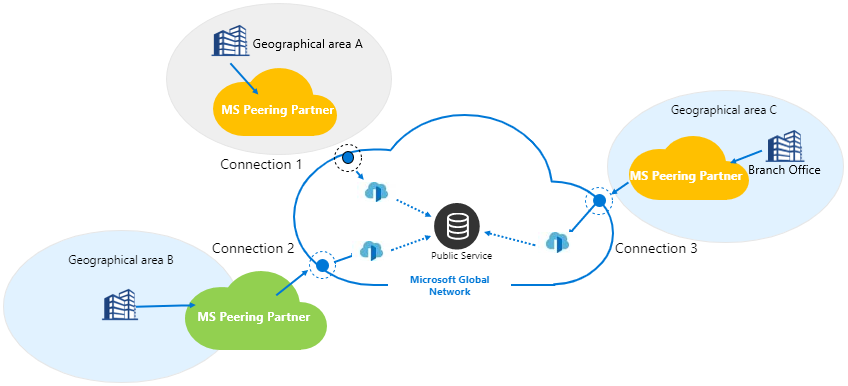Peering Service connection
A connection typically refers to a logical information set, identifying a Peering Service. It's defined by specifying the following attributes:
- Logical name
- Connectivity partner
- Connectivity partner Primary service location
- Connectivity partner Backup service location
- IP prefixes
Customer can establish a single connection or multiple connections as per the requirement. A connection is also used as a unit of telemetry collection. For instance, to opt for telemetry alerts, you must define the connection that you want to monitor.
Note
When you sign up for Peering Service, we analyze your Windows and Microsoft 365 telemetry in order to provide you with latency measurements for your selected prefixes. For more information about connection telemetry, see Access Peering Service connection telemetry.
Scenario - Let's say a branch office is spread across different geographic locations as shown in the figure. Here, the customer is required to provide a logical name, Service Provider (SP) name, customer's physical location, and IP prefixes that are (owned by the customer or allocated by the Service Provider) associated with a single connection. The primary and backup service locations with partner help defining the preferred service location for customer. This process must be repeated to create Peering Service for other locations.

Note
State level-filtration is considered for the customer's physical location when the connection is geo-located in the United States.
- To learn how to register Peering Service connection, see Create Peering Service using the Azure portal.
- To learn about Peering Service connection telemetry, see Access Peering Service connection telemetry.